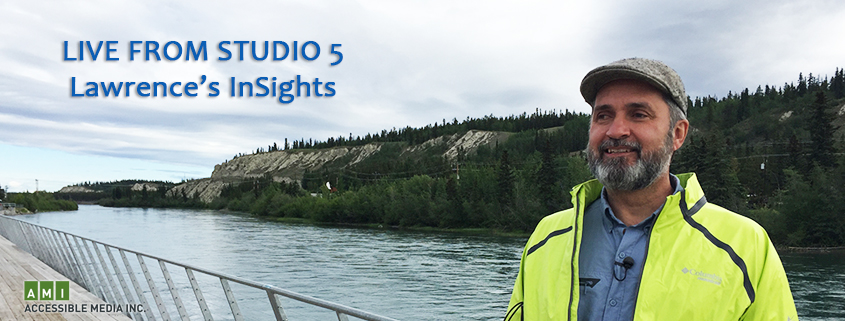
Inuit Circumpolar Council Meets in Alaska
Inuit People are a nation of people who share common language, culture, and a common land along the Arctic coast of Siberia, Alaska, Canada and Greenland.
Starting this past Sunday, the Inuit Circumpolar Council started a three-day meeting in Alaska to discuss a wide range of common issues.
(Transcript of Lawrence Gunther’s bi-weekly 12-minute segment on Live from Studio 5 broadcast over AMI TV and Audio across Canada)
Q. Welcome back Lawrence, when did the Inuit Circumpolar Council get its start?
A. It all started 40 years back when the first meeting took place in Barrow Alaska. It’s where the meeting is being held now.
A. Last year the name Barrow was changed back to its original name, Utqiaġvik.
A. The Council meets every four years.
Q. What role does the Inuit Circumpolar Council serve?
A. It’s a non-governmental organization that represents about 150,000 Inuit in Canada, Greenland, the United States and Russia
A. The Council’s mandate is to promote Inuit rights and culture, and to represent the Inuit at the Arctic Council.
A. Council meetings cover everything from human rights, health and social issues, to strategies for tackling environmental and economic issues.
Q. How does the Inuit Circumpolar Council differ from the Arctic Council?
A. The Arctic Council is a high-level Ministerial body made up of 8 countries and three Inuit organizations — Canada, Iceland, Russia, United States, Denmark, Norway, Sweden and Finland.
A. The Arctic Council just met in New York City at the UN during a meeting on Sustainable Development
A. The main difference between the two Councils is that the Inuit Circumpolar Council is made up of elected Inuit officials, where as the Arctic Council is made up of elected politicians representing the interests of the countries where the Inuit live.
Q. can you give some examples where the two Councils might be going in different directions?
A. The Inuit are facing increasingly difficult challenges such as youth suicide, disease outbreaks like TB, and the destruction of their environment due to climate change.
A. Politicians see the Arctic as the next frontier that climate change has opened up for economic exploitation.
Q. What are the chances of the Inuit Circumpolar Council being heard at the Arctic Council?
A. If managed fairly, everyone with a stake in the Arctic will benefit, but so far economic activity, starting with commercial whaling, has only meant hardship for Inuit people.
A. Now, Inuit want to be the ones who shape how economic development will take place, but with so much at stake, such as territorial issues between many of the major players in the region, it’s difficult to imagine that Inuit voices will be heard.


